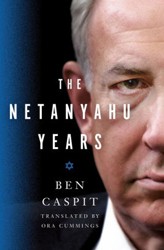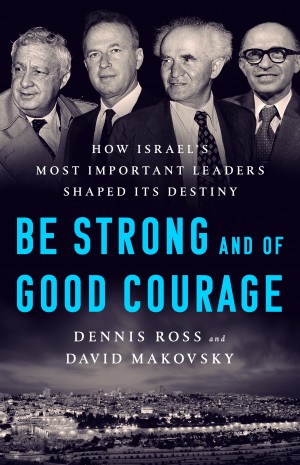Reading Peace is Possible, S. Daniel Abraham’s stirring new book, anyone with a passing knowledge of the Arab- Israeli conflict may find himself tickled by an unfamiliar sensation: Hope.
Abraham, the successful entrepreneur behind the Slim Fast weight loss products, has dedicated the last two decades to his indefatigable effort to bring about reconciliation between Israel and its neighbors. For this purpose, Abraham, accompanied by the late Congressman Wayne Owens (D.-Utah), traveled extensively in the Middle East, meeting with leaders from Syria’s Hafez Assad to Palestinian Authority Chairman Yasser Arafat. His new book, subtitled Conversations with Arab and Israeli Leaders from 1988 to the Present, is a frank and compelling account of those meetings.
To a neophyte, the book is likely to read like a streamlined and eloquently told brief history of the conflict; Abraham tells the story of his efforts in chronological order, providing context and leaving no loose ends. From the pre-negotiation days of the late 1980s to the current and uncertain present, he presents key figures, basic demands and seminal ideas in a straightforward manner, thereby rescuing the narrative of the peace process from the episodic treatment it usually receives in most newspaper and magazine reports.
But there is another layer to Peace is Possible, which elevates it far above the preserve of simple chronology. An artful raconteur, Abraham provides valuable insight not only into the intricate machinations of backroom negotiations, but also into the psyches of the region’s eminent figures. Reading, for example, Abraham’s amused observations about Israeli Prime Minister Ehud Barak fussing over seating arrangements before a meeting with Arafat, one is relieved for a moment of the unbearable seriousness of the conflict. This, in a sense, serves Abraham’s bottom line well: In his telling, the conflict is not a faceless Leviathan, but an inherently human story, with pride, fear and prejudice all intertwined to create an impossibly complex knot.
Despite the complexity, however, the overarching theme of the book is optimistic. Abraham has devoted his life to convincing Israeli and Arab leaders to negotiate with one another; despite the shortcomings of these negotiations, the reader is nonetheless likely to leave the book with a sense that more has been accomplished than had failed. Compare, for example, Abraham’s recollections from conversations with Arafat and Israeli Prime Minister Yitzhak Shamir circa 1988 — conversations rife with mutual refusals — to both sides’ stances less than a decade later, and the picture portrayed is one of progress; cautious, stuttering, and finicky, but progress nonetheless.
But Abraham is no mere booster. Throughout the book, he does not hesitate to provide unflattering assessments of his conversationalists. When Israeli Prime Minister Yitzhak Rabin, for example, deports 415 radical Palestinians to Lebanon on the eve of a possible breakthrough in the then-secret talks with Arafat and the PLO, or when Syrian negotiators practice political brinksmanship to avoid any concrete commitments to peace, Abraham is unremitting in his critiques.
Herein lies the book’s life-force: Objective, passionate, and straightforward, Abraham is the perfect narrator for a story as complicated as that of the conflict. Free of jargon or diplomatic namedropping, he is a sort of well-connected Everyman, a quintessential outsider armed with goodwill and common sense on a delicate and demanding mission. Watching this outsider trade ideas — and jokes, such as responding to a compliment by Assad by touting his own weight loss products— with a battery of world leaders brings the conflict down to a manageable size. This is the book’s considerable value; there are no magical solutions here, no secret plans p r e v i o u s l y unearthed. All Abraham offers is a dose of realistic optimism.
“The enemy of the Israelis,” he observes, “was not the Palestinians, and the enemy of the Palestinians was not the Israelis. The enemy was the conflict itself. That’s what had to end.” By putting the conflict in perspective, Abraham makes yet another important contribution to achieving just that.





